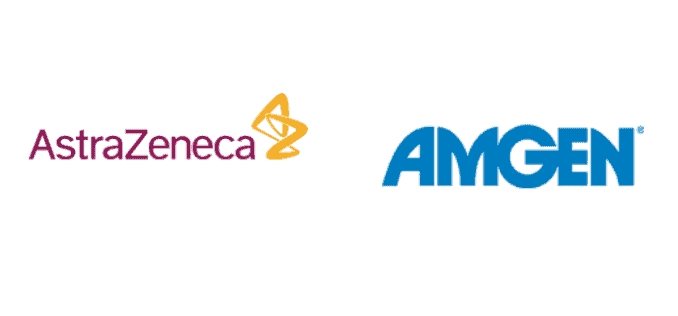
An experimental asthma drug co-developed by AstraZeneca (AZ) and Amgen significantly reduces the annualised asthma exacerbation rate (AAER) in patients with severe, uncontrolled asthma.
The investigational medicine, tezepelumab, is a thymic stromal lymphopoietin (TSLP) targeting antibody – TLSP is thought to play a pivotal role in causing asthma inflammation and is a novel target for an asthma drug.
The phase 3 NAVIGATOR trial evaluated tezepelumab plus standard of care, which included medium- or high-dose inhaled corticosteroids (ICS) plus at least one controller medication, with or without oral corticosteroids (OCS).
Over 52 weeks, tezepelumab hit the primary endpoint of the trial after demonstrating a statistically significant and clinically meaningful reduction in AAER.
In addition, a subgroup of patients with baseline eosinophil (a type of white blood cell) counts under 300 cells per microlite who were treated with the drug also achieved meaningful reductions in AAER.
Another patient subgroup containing participants with baseline eosinophils under 150 cells per microlite experienced similar reductions in AAER.
In September 2018, tezepelumab scored a breakthrough therapy designation (BTD) from the US Food and Drug Administration (FDA) in patients with severe asthma without an eosinophilic phenotype.
AZ and Amgen’s drug acts further upstream in the inflammatory cascade responsible for asthma, which could help it to become a new standard treatment for severe asthma patients with low eosinophil levels.
According to AZ, over two-thirds of patients with severe asthma have T2 inflammation-driven asthma, which includes the eosinophilic phenotype, and typically elevated eosinophil levels.
“Tezepelumab works differently from any other asthma biologic medicine and targets multiple inflammatory pathways that contribute to asthma symptoms and exacerbations,” said Mene Pangalos, executive vice president, BioPharmaceuticals R&D at AZ.
“Building on the broad efficacy previously seen with tezepelumab, this exciting data brings us one step closer to delivering a medicine to severe asthma patients, including those with low eosinophil counts,” he added.
AZ’s own interleukin-5 inhibitor (IL-5) Fasenra (benralizumab) is approved as an add-on maintenance treatment for eosinophilic asthma, while another IL-5 inhibitor from GlaxoSmithKline’s IL-5 Nucala (mepolizumab) is authorised as a treatment for severe asthma associated with elevated eosinophils.




